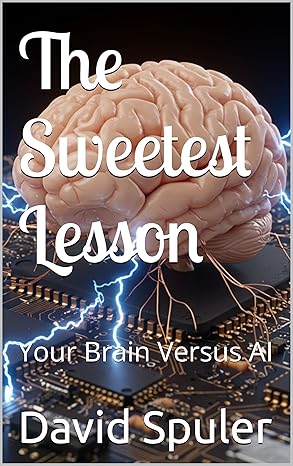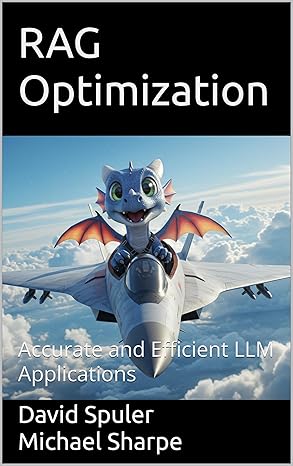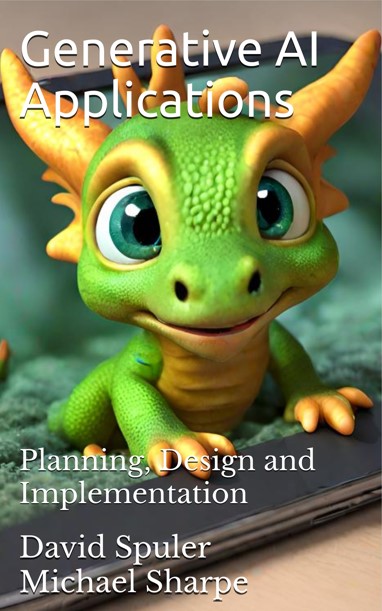Aussie AI
Incremental AI Algorithms
-
Last Updated 17 November, 2025
-
by David Spuler, Ph.D.
Incremental algorithms are a general class of code optimizations where a large amount of computation is replaced by repeated smaller code executions. It is the opposite of "batch processing" where a big chunk of processing is done all at once.
A simple example is summing a list of numbers input by a user. You can either get all the numbers, and then scan through them, adding them all at once (non-incrementally). Or you can use the incremental approach, where you keep a running sum, and add each new number to that sum as it is received.
AI models in a sense are one big incremental algorithm. During training, the weights are incrementally updated, one input item at a time. During inference, the tokens are scanned one at a time, the layers incrementally modify the logits (one layer at a time), and the autoregressive decoding phase processes one new output token at a time.
Incremental learning is a method of training or fine-tuning whereby the model learns incrementally. This is an established machine learning algorithm with a body of research. However, inference optimization is not a goal of incremental learning.
Incremental algorithms are not a mainstay of inference optimization. Generally, most of the AI optimization techniques tend to be batch rather than incremental. One major reason is that batch algorithms are often easier to parallelize, whereas incremental computations need to await the results of the prior step. However, there are some optimizations to AI inference that involve the use of incremental algorithms:
Incremental Inference
Research on using incremental algorithms for LLM inference:
- Or Sharir, Anima Anandkumar, 27 Jul 2023, Incrementally-Computable Neural Networks: Efficient Inference for Dynamic Inputs, https://arxiv.org/abs/2307.14988
- Supun Nakandala, Kabir Nagrecha, Arun Kumar, and Yannis Papakonstantinou. 2020. Incremental and Approximate Computations for Accelerating Deep CNN Inference. ACM Trans. Database Syst. 45, 4, Article 16 (December 2020), 42 pages. https://doi.org/10.1145/3397461 https://dl.acm.org/doi/abs/10.1145/3397461 PDF: https://dl.acm.org/doi/pdf/10.1145/3397461
Incremental Algorithm Research
Research on incremental algorithms:
- David Spuler, March 2024, Incremental Algorithms, in Generative AI in C++, https://www.aussieai.com/book/ch13-incremental-algorithms
- David Spuler, March 2024, Chapter 13. Algorithm Speedups, Generative AI in C++: Coding Transformers and LLMs, https://www.amazon.com/dp/B0CXJKCWX9
- Wikipedia, Sep 2024, Incremental computing, https://en.wikipedia.org/wiki/Incremental_computing
- Liu, Y.A. Efficiency by Incrementalization: An Introduction. Higher-Order and Symbolic Computation 13, 289–313 (2000). https://doi.org/10.1023/A:1026547031739 https://link.springer.com/article/10.1023/A:1026547031739
- Pranjal Naman, Yogesh Simmhan, 17 May 2025, Ripple: Scalable Incremental GNN Inferencing on Large Streaming Graphs, https://arxiv.org/abs/2505.12112
- Kyurae Kim, Zuheng Xu, Jacob R. Gardner, Trevor Campbell, 23 Jul 2025, Tuning Sequential Monte Carlo Samplers via Greedy Incremental Divergence Minimization, https://arxiv.org/abs/2503.15704
- Hao Chen, Han Tao, Guo Song, Jie Zhang, Yunlong Yu, Yonghan Dong, and Lei Bai, 18 Jul 2025, VA-MoE: Variables-Adaptive Mixture of Experts for Incremental Weather Forecasting, https://arxiv.org/abs/2412.02503
- Arun Vignesh Malarkkan, Dongjie Wang, Haoyue Bai, and Yanjie Fu, 18 Jul 2025, Incremental Causal Graph Learning for Online Cyberattack Detection in Cyber-Physical Infrastructures, https://arxiv.org/abs/2507.14387
- Julia Hindel, Ema Mekic, Enamundram Naga Karthik, Rohit Mohan, Daniele Cattaneo, Maria Kalweit, and Abhinav Valada, 10 Aug 2025, Dynamic Robot-Assisted Surgery with Hierarchical Class-Incremental Semantic Segmentation, https://arxiv.org/abs/2508.01713
- Patryk Krukowski,{\L}ukasz Gorczyca, Piotr Helm, Kamil Ksi\k{a}\.zek, Przemys{\l}aw Spurek, 3 Aug 2025, SHIELD: Secure Hypernetworks for Incremental Expansion Learning Defense, https://arxiv.org/abs/2506.08255
- Naama Kashani, Mira Cohen, Uri Shaham, 12 Aug 2025, P-CAFE: Personalized Cost-Aware Incremental Feature Selection For Electronic Health Records, https://arxiv.org/abs/2508.08646
- Jungwoo Kim, Jong-Seok Lee, 12 Aug 2025, Exploring Cross-Stage Adversarial Transferability in Class-Incremental Continual Learning, https://arxiv.org/abs/2508.08920
- Minghao Liu, Chia-Hsuan Lu, Marta Kwiatkowska, 12 Aug 2025, Exact Verification of Graph Neural Networks with Incremental Constraint Solving, https://arxiv.org/abs/2508.09320
- Lecheng Kong, Theodore Vasiloudis, Seongjun Yun, Han Xie, Xiang Song, 13 Aug 2025, Dynamic Mixture-of-Experts for Incremental Graph Learning, https://arxiv.org/abs/2508.09974
- Yuan Meng, Xiangtong Yao, Haihui Ye, Yirui Zhou, Shengqiang Zhang, Zhenguo Sun, Zhenshan Bing, Alois Knoll, 18 Aug 2025, Embodied Long Horizon Manipulation with Closed-loop Code Generation and Incremental Few-shot Adaptation, https://arxiv.org/abs/2503.21969
- Bruna C. B. Charytitsch and Mar\'ia C. V. Nascimento, 21 Aug 2025, An Efficient Hybridization of Graph Representation Learning and Metaheuristics for the Constrained Incremental Graph Drawing Problem, https://arxiv.org/abs/2508.15949
- Zhendong Yang, Jie Wang, Liansong Zong, Xiaorong Liu, Quan Qian, Shiqian Chen, 16 Aug 2025, Few-shot Class-incremental Fault Diagnosis by Preserving Class-Agnostic Knowledge with Dual-Granularity Representations, https://arxiv.org/abs/2508.16634
- Sankalp Pandey, Xuan Bac Nguyen, Nicholas Borys, Hugh Churchill, Khoa Luu, 24 Aug 2025, CLIFF: Continual Learning for Incremental Flake Features in 2D Material Identification, https://arxiv.org/abs/2508.17261
- Manar D. Samad, Kazi Fuad B. Akhter, Shourav B. Rabbani, Ibna Kowsar, 25 Aug 2025, Imputation is Not Required: Incremental Feature Attention Learning of Tabular Data with Missing Values, https://arxiv.org/abs/2504.14610
- Prajwal Singh, Ashish Tiwari, Gautam Vashishtha, Shanmuganathan Raman, 26 Aug 2025, Incremental Multi-Scene Modeling via Continual Neural Graphics Primitives, https://arxiv.org/abs/2411.19903
- Wonho Lee, Hyunsik Na, Jisu Lee, Daeseon Choi, 13 Aug 2025, IPG: Incremental Patch Generation for Generalized Adversarial Patch Training, https://arxiv.org/abs/2508.10946
- Jonathan Adam Rico, Nagarajan Raghavan, Senthilnath Jayavelu, 19 Sep 2025, Incremental Multistep Forecasting of Battery Degradation Using Pseudo Targets, https://arxiv.org/abs/2509.15740
- Marian Renz, Felix Igelbrink, Martin Atzmueller, 15 Sep 2025, Integrating Prior Observations for Incremental 3D Scene Graph Prediction, https://arxiv.org/abs/2509.11895
- Daniel Pfrommer, Max Simchowitz, Ali Jadbabaie, 18 Sep 2025, A Test-Function Approach to Incremental Stability, https://arxiv.org/abs/2507.00695
- Nicki Barari, Edward Kim, Christopher MacLellan, 27 Oct 2025, Explaining Robustness to Catastrophic Forgetting Through Incremental Concept Formation, https://arxiv.org/abs/2510.23756
- Phi-Hung Hoang, Nam-Thuan Trinh, Van-Manh Tran and Thi-Thu-Hong Phan, 20 Oct 2025, Enhanced Fish Freshness Classification with Incremental Handcrafted Feature Fusion, https://arxiv.org/abs/2510.17145
- Chiara Cappellino, Gianluca Mancusi, Matteo Mosconi, Angelo Porrello, Simone Calderara, Rita Cucchiara, 20 Oct 2025, DitHub: A Modular Framework for Incremental Open-Vocabulary Object Detection, https://arxiv.org/abs/2503.09271
- Onur Akg\"un, 26 Oct 2025, SPIRAL: Self-Play Incremental Racing Algorithm for Learning in Multi-Drone Competitions, https://arxiv.org/abs/2510.22568
- Yuanzhe Hu, Yu Wang, Julian McAuley, 26 Sep 2025, Evaluating Memory in LLM Agents via Incremental Multi-Turn Interactions, https://arxiv.org/abs/2507.05257
- Sashank Makanaboyina, 6 Oct 2025, SER-Diff: Synthetic Error Replay Diffusion for Incremental Brain Tumor Segmentation, https://arxiv.org/abs/2510.06283
- Yisha Wu, Cen (Mia) Zhao, Yuanpei Cao, Xiaoqing Su, Yashar Mehdad, Mindy Ji, Claire Na Cheng, 8 Oct 2025, Incremental Summarization for Customer Support via Progressive Note-Taking and Agent Feedback, https://arxiv.org/abs/2510.06677
- Zhiwei Hao, Jianyuan Guo, Li Shen, Kai Han, Yehui Tang, Han Hu, Yunhe Wang, 21 Oct 2025, ScaleNet: Scaling up Pretrained Neural Networks with Incremental Parameters, https://arxiv.org/abs/2510.18431
- Pengkai Wang, Qi Zuo, Pengwei Liu, Zhijie Sang, Congkai Xie, Hongxia Yang, 17 Oct 2025, InfiMed-ORBIT: Aligning LLMs on Open-Ended Complex Tasks via Rubric-Based Incremental Training, https://arxiv.org/abs/2510.15859
- Peng Ren and Hai Yang, 17 Oct 2025, LILAC: Long-sequence Incremental Low-latency Arbitrary Motion Stylization via Streaming VAE-Diffusion with Causal Decoding, https://arxiv.org/abs/2510.15392
- Lucas Maystre, Gabriel Barello, Tudor Berariu, Aleix Cambray, Rares Dolga, Alvaro Ortega Gonzalez, Andrei Nica, David Barber, 24 Oct 2025, Incremental Sequence Classification with Temporal Consistency, https://arxiv.org/abs/2505.16548
- David Benavente-Rios and Juan Ruiz Rodriguez and Gustavo Gatica, 10 Oct 2025, Exploration of Incremental Synthetic Non-Morphed Images for Single Morphing Attack Detection, https://arxiv.org/abs/2510.09836
- Jiajing Wang, 9 Oct 2025, Incremental Hybrid Ensemble with Graph Attention and Frequency-Domain Features for Stable Long-Term Credit Risk Modeling, https://arxiv.org/abs/2510.07663
AI Books from Aussie AI

|
The Sweetest Lesson: Your Brain Versus AI: new book on AI intelligence theory:
Get your copy from Amazon: The Sweetest Lesson |

|
RAG Optimization: Accurate and Efficient LLM Applications:
new book on RAG architectures:
Get your copy from Amazon: RAG Optimization |

|
Generative AI Applications book:
Get your copy from Amazon: Generative AI Applications |

|
Generative AI programming book:
Get your copy from Amazon: Generative AI in C++ |

|
CUDA C++ Optimization book:
Get your copy from Amazon: CUDA C++ Optimization |

|
CUDA C++ Debugging book:
Get your copy from Amazon: CUDA C++ Debugging |
More AI Research
Read more about: